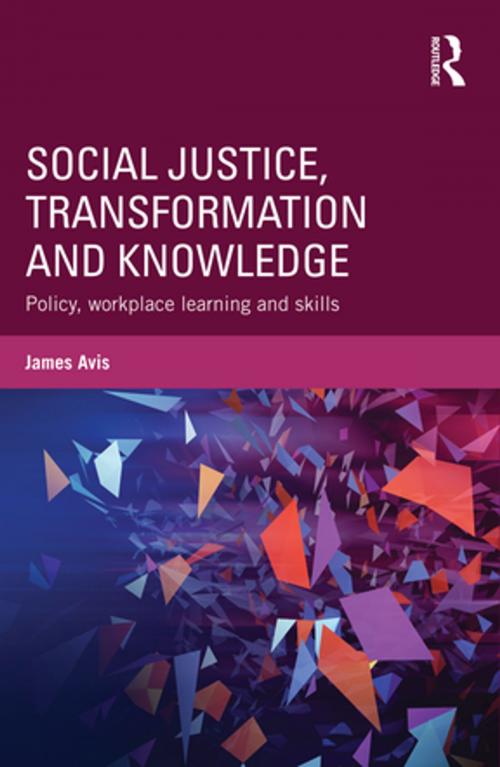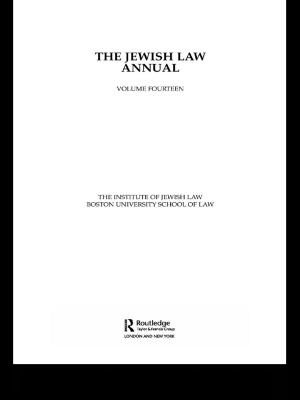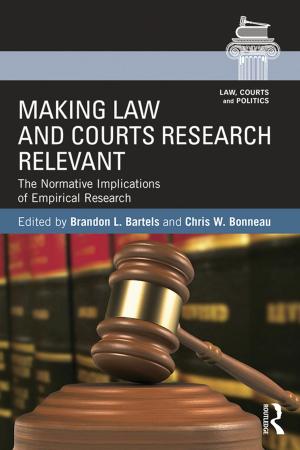Social Justice, Transformation and Knowledge
Policy, Workplace Learning and Skills
Nonfiction, Reference & Language, Education & Teaching, Educational Theory, Adult & Continuing Education, Higher Education| Author: | James Avis | ISBN: | 9781317605751 |
| Publisher: | Taylor and Francis | Publication: | January 22, 2016 |
| Imprint: | Routledge | Language: | English |
| Author: | James Avis |
| ISBN: | 9781317605751 |
| Publisher: | Taylor and Francis |
| Publication: | January 22, 2016 |
| Imprint: | Routledge |
| Language: | English |
* Social Justice, Transformation and Knowledge: Policy, Workplace Learning and Skills* examines the policy contexts in which lifelong learning, vocational education and training and skill development is set. It provides a critique of neo-liberalism and its impact on vocational education and training and lifelong learning. It interrogates potentially progressive policy interventions that take for granted capitalist relations as these can become a form of ‘comfort radicalism’ that whilst calling for structural change remain lodged within capitalism. Such analyses are limited, particularly in austere conditions of worklessness with increasing numbers of workers surplus to the requirements of capital.
Offering detailed discussions within UK, European and global contexts, this book proves an insightful and critical text which illustrates Professor Avis’ extensive experience and knowledge of the field. Adopting a substantive focus on debates and analysis with significance that extends beyond the particular policy context of England, the book offers:
- an exploration of arguments that suggest workplace learning carries with it progressive possibilities
- an examination of models of class implicit within education policy and documents
- consideration of forms of governance and professionalism and their articulation to the pursuit of social justice
- an insight into discussions concerned with social justice, knowledge as well as the current conditions of austerity in which education and social policy are emphasised
Social Justice, Transformation and Knowledge is a significant addition to the field. It is an insightful and thought-provoking book from which students, lecturers and researchers with an interest in education studies, education policy, and social justice will greatly benefit from reading.
* Social Justice, Transformation and Knowledge: Policy, Workplace Learning and Skills* examines the policy contexts in which lifelong learning, vocational education and training and skill development is set. It provides a critique of neo-liberalism and its impact on vocational education and training and lifelong learning. It interrogates potentially progressive policy interventions that take for granted capitalist relations as these can become a form of ‘comfort radicalism’ that whilst calling for structural change remain lodged within capitalism. Such analyses are limited, particularly in austere conditions of worklessness with increasing numbers of workers surplus to the requirements of capital.
Offering detailed discussions within UK, European and global contexts, this book proves an insightful and critical text which illustrates Professor Avis’ extensive experience and knowledge of the field. Adopting a substantive focus on debates and analysis with significance that extends beyond the particular policy context of England, the book offers:
- an exploration of arguments that suggest workplace learning carries with it progressive possibilities
- an examination of models of class implicit within education policy and documents
- consideration of forms of governance and professionalism and their articulation to the pursuit of social justice
- an insight into discussions concerned with social justice, knowledge as well as the current conditions of austerity in which education and social policy are emphasised
Social Justice, Transformation and Knowledge is a significant addition to the field. It is an insightful and thought-provoking book from which students, lecturers and researchers with an interest in education studies, education policy, and social justice will greatly benefit from reading.















